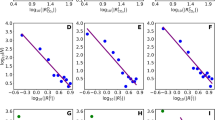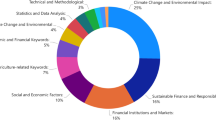"If we are to correct the consequences of the world's actions, we must understand the machinery that accounts for these consequences" (Hardin (1978a, p. 310).
Abstract
The important message contained in Garrett Hardin's seminalScience article, "The Tragedy of the Commons," is that in making resource-use decisions individuals see their own narrow interests best and, if not constrained by institutions such as governmental rule or market incentives, will tend to follow those narrow interests. Individuals do not automatically seek to use resources in the long-run best interests of society. This fact of life leads to abuse of resources to which access is not controlled.
In this paper, the same insight is applied to the two types of control mechanism cited by Hardin: socialist management and private ownership. Much has been written in the economics literature, especially since "Tragedy" was published, which bears on any comparative analysis of the two systems. Some of these insights are reported here.
Recognizing that narrow interests dominate resource decisions in both the private and public arena is fundamental to the problem of insuring that resource decisions are made with proper weights given to all gains and sacrifices made. Considering the incentive and information effects of property rights ownership reveals some serious omissions in Hardin's description—which draws from and parallels descriptions by many other commentators—of how markets function when private property rights are present. Most importantly, owners' incentives to weigh future values, and the social role played by interest rate calculations in business, require a better understanding.
To understand alternative institutions, and to "get it right" in choosing among them, has enormous implications for responsible use of natural resources. The institutional arrangements we choose will strongly influence the carrying capacity of pastures—and indeed of our planet.
Similar content being viewed by others
References
Ackerman, B.A., & Hassler, W.T. (1981).Clean coal/dirty air, or how the Clean Air Act became a multibillion-dollar bail-out for the high-sulfur coal producers and what should be done about it. New Haven: Yale University Press.
Anderson T., & Hill, P.J. (1990). The race for property rights.Journal of Law and Economics, XXXIII(1), 177–198.
Anonymous. (1990). Third world pollution.Science, 248, 1308.
Baden, J.A., & Stroup, R.L. (1981, July). Saving the wilderness: A radical proposal.Reason.
Bartel, A.P., & Thomas, L.G. (1987). Predation through regulation: The wage and profit effects of the Occupational Safety and Health Administration and the Environmental Protection Agency,30(2), 239–264.
Council on Environmental Quality (1984).1984 Annual Report of the President's Council on Environmental Quality. Washington, D.C.: U.S. Government Printing Office.
DeAlessi, L. (1980). The economics of property rights: A review of the evidence.Research in Law and Economics, 2 1–47.
Durant, W. (1930).The life of Greece (p. 536). New York: Simon and Schuster.
Economic Staff. (1980). Descriptive analysis of the data from the Bryce Canyon National Park visitor survey (summer 1980). (Unpublished report, Office of Policy Analysis, U.S. Department of the Interior.
Gillis, M., & Repetto, R. (1989).Public Policy and the Misuse of Forest Resources. New York: Cambridge University Press.
Gwartney, J.D., and Stroup, R.L. (1986). Transfers, equality, and the limits of public policy.The Cato Journal 6(1). 111–137.
Gwartney, J.D., & Stroup, R.L. (1990).Economics: Private and Public Choice 5e. San Diego: Harcourt Brace, Jovanovich.
Hanke, S.H. (Ed.). (1986).Prospects for privatization (Proceedings, Vol. 36, No. 3). New York: The Academy of Political Science.
Hardin, G. (1978a). Political requirements for preserving our common heritage. In H.P. Brokaw (Ed.),Wildlife and America (pp. 310–317). Washington, D.C.: USGPO.
Hardin, G. (1978b). The tragedy of the commons.Science, 162 1243–1248.
Hardin, G. (1979, November). The meaning of ‘The tragedy of the commons.’ Unpublished (mimeo), p. 1.
Jensen, M.C. (1986). Agency costs of free cash flow, corporate finance, & takeovers.American Economic Rev., 76(2), 324–329.
Kensinger, J.W., & Martin, J.D. (1988). The quiet restructuring.Journal of Applied Corporate Finance, 1(1), 16–25.
Landy, M.K., Robert, M.J., & Thomas, S.R. (1990).The Environmental Protection Agency: Asking the wrong questions. New York: Oxford University Press.
Mahar, D.J. (no date).Government policies and deforestation in Brazil's Amazon region. Washington, D.C.: The World Bank.
McCracken, S. (1987). Democratic capitalism and the standard of living. In P.L. Berger (Ed.),Modern capitalism: Vol. 1. Capitalism and Equality in America (esp. p. 16). New York: Hamilton Press.
Panel on Common Property Resource Management. (1986). Board on Science and Technology for International Development, Office of International Affairs, National Research Council.Proceedings of the Conference on Common Property Resource Management. Washington, D.C.: National Academy Press.
Peters, C.M., Gentry, A.H., & Mendelsohn, R.R. (1989). Valuation of an Amazonian rainforest.Nature, 339 655–656.
Shaw, J.S., & Stroup, R.L. (1988, August/September). Gone fishin.Reason. 34–37.
Shaw, J.S., & Stroup, R.L. (1989). Global warming and ozone depletion. In W. Block (Ed.),Economics and the environment: A reconciliation (pp. 159–180). Vancouver: The Fraser Institute.
Simon, J.L., & Kahn, H. (1984).The resourceful earth: A response to global 2000. New York: Basil Blackwell, Inc.
Stroup, R.L., (1990, April 19). The market—conservation's best friend.Wall Street Journal.
Wolf, C., Jr. (1988).Markets or government. Cambridge: MIT Press.
Zuesse, E. (1981, Feb.). Love Canal: the truth seeps out.Reason. 16–33.
Author information
Authors and Affiliations
Additional information
Jane S. Shaw provided substantial assistance in preparing this paper.
Rights and permissions
About this article
Cite this article
Stroup, R.L. Controlling earth's resources: Markets or socialism?. Popul Environ 12, 265–284 (1991). https://doi.org/10.1007/BF01357918
Issue Date:
DOI: https://doi.org/10.1007/BF01357918




